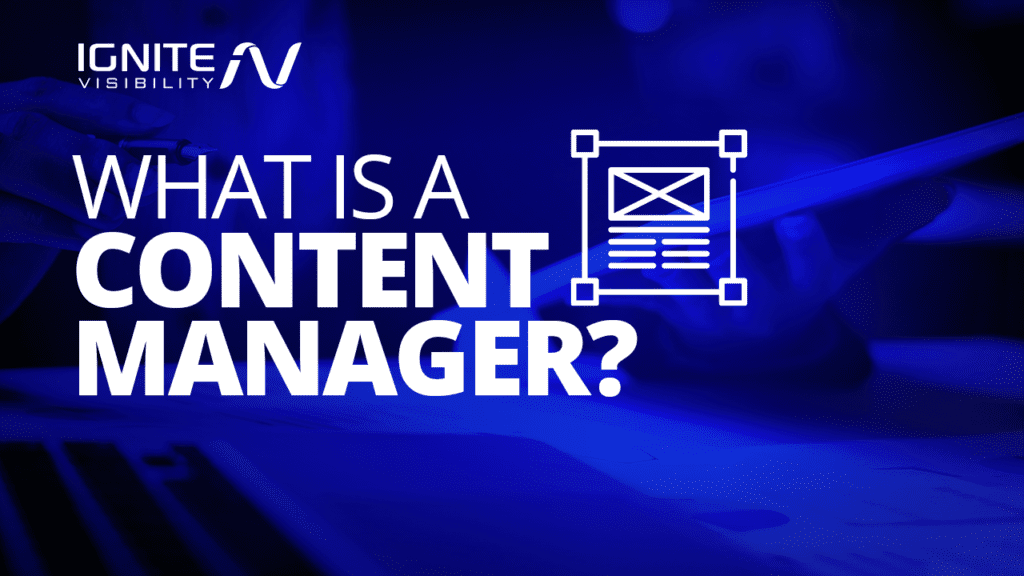A company’s content is its voice. It can affect whether people have a positive or negative view of a brand, their levels of trust, and even whether they notice a brand at all.
In 2020, almost every content manager is a digital content manager, and that means processes and skills are changing.
Here’s what you need to know about content management for the modern market.
What We’ll Cover:
- Why content management is so important
- Content management best practices
- 2020 content manager must-haves
What Is the Role of a Content Manager?
Content managers are responsible for ideating, prioritizing, creating, and standardizing all content produced for a company’s website or for internal communications.
They create a content marketing strategy and oversee the day-to-day tasks for executing it. They’re usually part of the marketing department, but will also interact with other leadership roles and sales.
The term “digital content manager” is also used for this role, because they’re frequently in charge of digital products.
Website landing pages, blogs, product descriptions, explainer or sales videos, social media posts, e-books, email campaigns, and more all fall under the responsibility of digital content managers. They often oversee a team, but not always.
Why Is Great Content Management Important?
Content managers ensure that a brand consistently puts out high-quality, engaging marketing copy that achieves business goals.
It’s no small feat, which is why this is one of the most important positions in marketing.
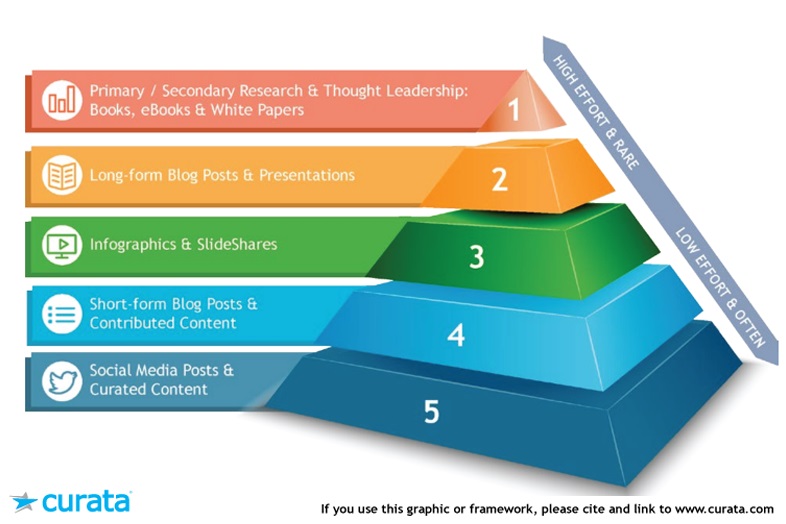
Content marketing pyramid. Image courtesy of Curata.
Why not just leave it up to your marketing specialists or hire a couple of freelancers?
An in-house or agency content management team has a few benefits. A good content manager will create a culture of quality and make sure no typos slip through the cracks.
A centrally managed team will have better communication and more timely deliverables. They may also be more invested in the content, leading to more creativity and innovation—always positives.
Best Practices for Content Management
Whether content managers are writing blog posts for a travel brand or technical product copy for medical devices, these established best practices will ensure they get the most out of their content.
Define Your Goals
You had a great idea for a really fun, creative blog post or video—congratulations! Good content managers are always going to say, “Great! But what’s the goal?”
Here’s the truth: The Internet doesn’t need more content. It needs better content. It needs content that serves a purpose not just for the reader, but also for the website or app where it lives.
Content managers usually don’t start with specific topics, no matter how cool they are. They always start with the “why.”
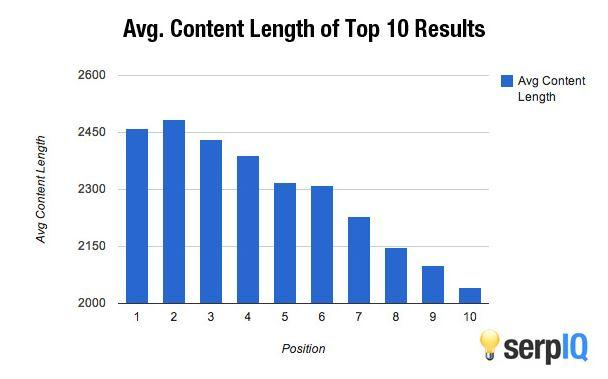
Long-from content tends to rank higher in the search results
Content can have many different goals. You might be trying to get to the top of the SERPs with useful content and a solid SEO strategy.
Or maybe you want to earn quality backlinks from websites with high domain authority.
Your goal could be soft metrics like brand awareness, social media shares, or website visits. Or it could be cold, hard sales.
The important thing is to define your end goal, then work backwards to reach it.
Map Out a Strategy
Most of us don’t usually get in a car without knowing where we’re going. We don’t go for hikes blindfolded or bake croissants without a recipe.
Likewise, content managers don’t make content without a strategy.

The four key components of a content marketing strategy
A content strategy doesn’t have to be set in stone. Changes in the industry, in your market, or in the business’s goals may mean you need to pivot.
A lot of content management is about testing, measuring, and adjusting based on your findings, as well.
The best content managers create an agile strategy made up of smaller tasks that ladder up to bigger goal.
What will your strategy include? Content managers should be familiar with all types of content, including video, social media, blog posts, thought leadership, and more.
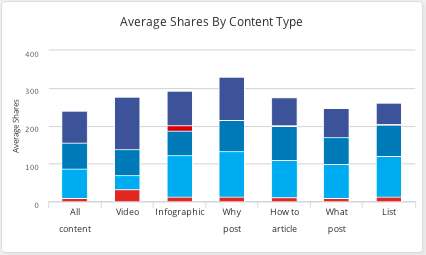
Tools like Buzzsumo will help you monitor your content by content type
You can write new content, update existing content, create partnership content, write guest blogs on other websites, and more.
The best practice for content management is a strategy that incorporates many types of content.
Make a Calendar
Chefs have recipes. Bus drivers have routes. Architects have blueprints. Digital content managers have editorial calendars, and they’re just as essential.
An editorial calendar is a high-level framework that outlines your goals, themes, and specific content pieces for the quarter or year.
As a content manager, your editorial calendar is your best friend. It shows you where you’ve been and where you’re going with a single glance.
It helps you stay organized and plan for the future, and it communicates your strategy to other internal stakeholders.
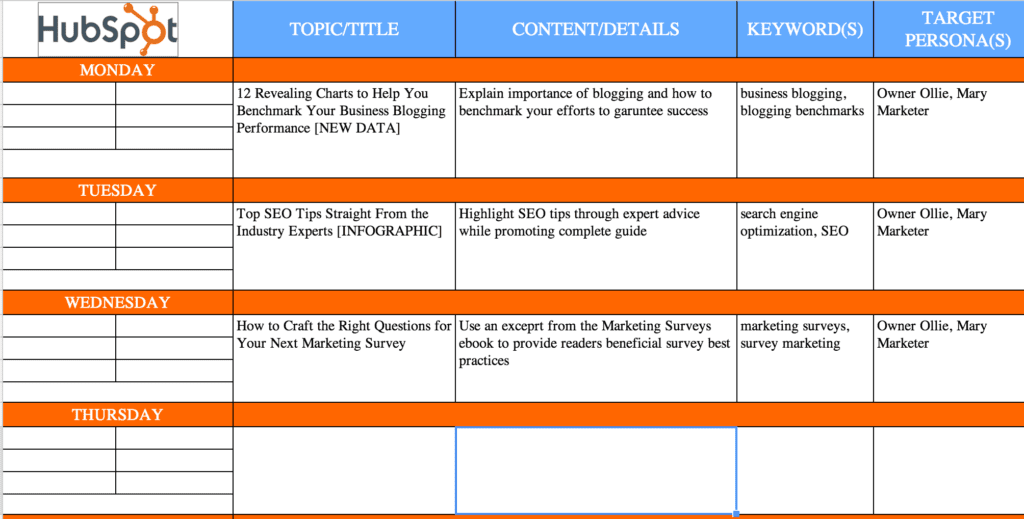
Content marketing editorial calendar. Image courtesy of Hubspot
Editorial calendars can be made in a few different formats, but they almost always use Google Sheets or Excel. They’re organized by month, so using an actual calendar view is a popular format. Gantt chart styles are another format that works well, or listing each month as a column and fill in your content. It’s up to content managers to find the format that works for them.
Track Your Results
Content managers know that if they can’t show the impact of their content, they’ll never be able to prove its worth. Tracking and measuring results is key to demonstrating content’s value.
This is where you’ll really put the “digital” in digital content manager, using your analytical skills to work to dig into the numbers and see exactly where content can have the most impact.
There are many different metrics, and what you measure will depend on your goals and tools.
Here are a few of the most common:
- Backlinks
- Bounce rate
- Click-through rate
- Form submission rate
- Open rate
- Page views
- Returning visitors
- Sales leads
- SERP rankings
- Sessions
- Social engagement
- Time on page
- Traffic
Remember that the internet is always changing. Audiences are fickle. Google’s ranking algorithm updates without warning.
Content managers don’t just “set it and forget it.” They measure, re-measure, and look for new ways to repurpose, renew, and get more out of content.
It all starts with tracking and analyzing results.

Here we see an example of a website that had thin content, that was not high quality. While the website did very well until about 2013, the poor quality content started to bring their rankings down in 2014.
Use the Right Tools
Content managers are organized, creative, and results-obsessed—but they don’t do it all alone. They also need the right tools to help them.
A flexible, intuitive content management system (CMS) is at the top of the list. This is a software that organizes your content from creation to publication and tracking.
It can manage writing and editing, design, URLs, publication dates, and more. There are many to choose from, but some of the most popular are WordPress, BigCommerce, and Magento.
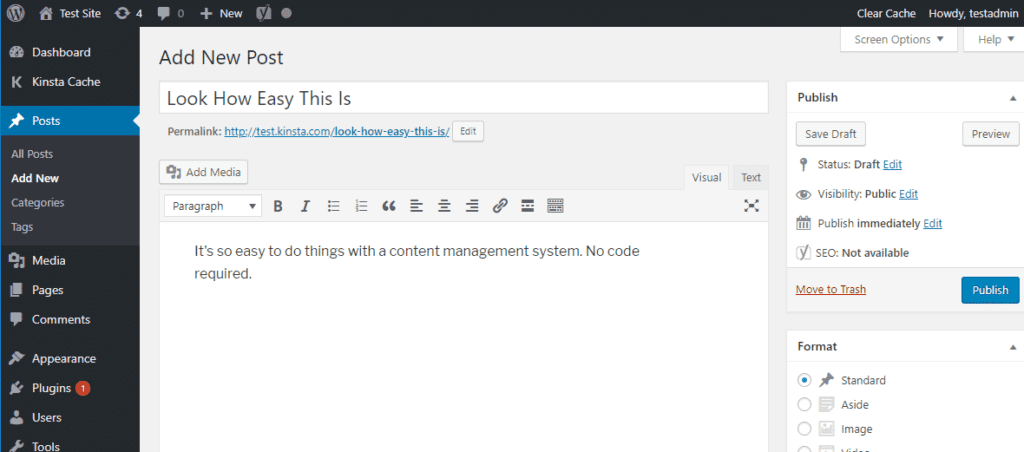
With a content management system like WordPress, you can just write your content in an interface that looks a good bit like Microsoft Word
The right tools also help content managers track and analyze the results of their content. Google Analytics measures traffic and engagement, Ahrefs and SEMrush track keywords and perform SEO audits, and HubSpot is useful for social media and website analytics.
You can also use tools like Grammarly for proofreading and Buzzsumo to come up with new content ideas.
Skills Content Managers Need for 2020
Best practices won’t mean much if content managers don’t have the skills to put them into place.
Digital content managers need to have writing and editing chops, but also an analytical mindset and strong organization. To set yourself apart, work on these six top skills.
Writing
We know—this one seems obvious. But just because someone contributed to their college newspaper or wrote a 100-page thesis on the lesser-known works of J.D. Salinger doesn’t necessarily make them a great writer.
Word limits are often the enemy of writers, but content managers love them. Content managers must not only be concise and to-the-point, including writing amazing, attention-grabbing headlines, but be able to write to different audiences using various tones of voice, and switch from one to another on a dime.
Editing
So you can write—but can you edit? Being a great writer and a great editor are very different skills. Writers need creativity and style, but editors need an eagle eye and attention to detail that rivals a rocket scientist.
Catching misspellings is only part of the job. Content managers must edit to ensure the copy follows the style guide, gets the tone of voice right, and that all pieces written for a client are consistent and correct.
Communication
Communicating verbally with clients, internal stakeholders, and your own team is a skill in itself. There’s an often-quoted rule that states communication is 93 percent nonverbal and only 7 percent verbal.
Your tone of voice and body language affect the way that the words you speak are perceived. Content managers need to master both of those aspects of communication.
Project Management
Communication is also a large part of project management. If you don’t let the client know when something will be late or you’ve hit a roadblock, you won’t have a client for long. Likewise, if you don’t communicate what you need from your team in a way that’s clear and consistent, you might have a lot more late projects.
Content managers use their project management skills to make sure everything runs smoothly and their client (or boss) is happy.
Website Analytics
Managing content in 2020 is about much more than writing a good piece and hoping it gets noticed. Digital content managers need critical skills like website analytics.
Knowing who is looking at your website and what they’re doing while they are there is essential to writing effect content. Understanding the basics of SEO and Google Analytics sets great digital content managers apart from the crowd.
Social Media
A basic knowledge of social media targeting and paid ads helps content managers create more effective content pieces as well as organic post copy and ad copy. Being able to understand the analytics independently is a valuable skill in a busy agency or enterprise-level organization where the social media managers have a lot on their plates.
Final Thoughts
If you run a business that uses content—and in 2020, everyone does—you probably need a digital content manager. Check out this ultimate guide to content marketing for more!
Whether you hire one person to take care of it all or a team that includes writers and editors (or hire an agency with a content management team), you’ll see the rewards instantly: higher-quality copy, organized and scheduled posts, better communication and most of all, engaging content that achieves your business goals and improves your bottom line.
